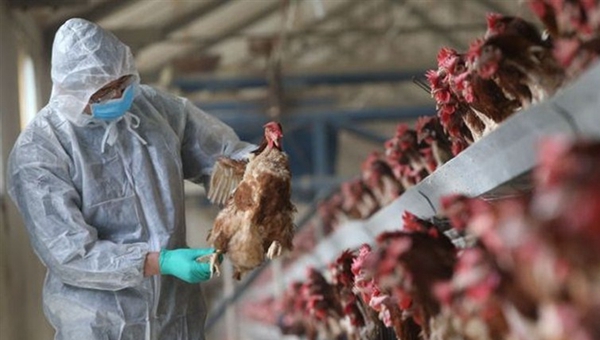
UP to 79 people died from H7N9 bird flu
in China last month, stoking fears that the spread of the virus this
season could be the worst on record.
January’s fatalities were up to four times higher than the same month in past years, and brought the total H7N9 death toll from the virus to 100 since October, according to National Health and Family Planning Commission figures.
Authorities have repeatedly warned the public to stay alert for the virus, but cautioned against panic.
The People’s Daily warned people in a social media post to stay away from live poultry markets, saying it was “extremely clear” that poultry and their excrement were the cause of the infections.
“The situation is ongoing, and our Chinese counterparts are actively investigating the reported cases,” the World Health Organization’s China office said.
“As the investigation is ongoing, it is premature to conclusively identify the cause for the increased number of cases. Nevertheless, we know that the majority of human cases got the A (H7N9) virus through contact with infected poultry or contaminated environments, including live poultry markets.”
Chinese chicken prices sank to their lowest levels in more than a decade yesterday, hammering meat processors’ share prices amid fears that bird flu could hit demand.
Prices in the main producing regions were at their lowest since 2005, according to Shanghai-based consultants JC Intelligence Co, which assesses prices.
“Now it’s relatively serious. The impact was underestimated,” said Alice Xuan, a JCI analyst. “Lots of places have closed down live poultry markets. That has quite a big impact.”
The spread of the deadly virus comes as neighboring South Korea and Japan also battle major outbreaks among their poultry flocks.
Over the past three months, many provinces have closed live poultry markets in an effort to prevent the spread of infection, hitting sales of birds, Xuan said.
The impact on local birds has dragged down the price of white feather chickens, bred from imported stock and used by fast-food chains, that account for more than half of China’s chicken supply.
The average price of live chickens in major producing areas, such as Shandong, Henan, Hebei, Gansu, Anhui, and the northeast region fell to 5.28 yuan (77 US cents) per kilogram this week, down from more than 7 yuan per kg in December.
The fallout from bird flu will add to concerns in the industry, which is already battling a domestic surplus after China ramped up output and imports rose just as the pace of demand growth has slowed.
China, which first reported a human infection from the virus in March 2013, has seen a sharp rise in H7N9 cases since December. The official government total is 306 since October, with 192 last month.
Some provincial health departments in China announce individual cases as they are confirmed, while others wait to include them in their monthly updates.
Most of the H7N9 human infections reported this season have been in the south and along the coast.
In Hong Kong, where two of the four patients infected with H7N9 this winter have died, health officials said they would step up checks at poultry farms.
H7N9 had spread widely and early this year, but most cases were contained in the same areas as previous years, including the Yangtze River Delta and Guangdong, Shu Yuelong, head of the Chinese National Influenza Center, told state radio.
On Saturday, Beijing reported its first human H7N9 case of the year, a 68-year-old man from neighboring Hebei Province. A second human case was reported on Tuesday.
“It is highly likely that further sporadic cases will continue to be reported,” the WHO said. “Whenever influenza viruses are circulating in poultry, sporadic infections or small clusters of human cases are possible.”
